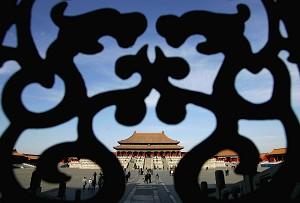On March 4, 2006, dozens of high-ranking Chinese Communist Party (CCP) officials, senior economists and legal experts held the “Xishan Meeting” at the Xinglin Mountain Village, a Beijing suburb. Professor He Weifang from Beijing University openly brought up his opinions on the political reforms of China. The topics covered included the anti-constitutional government of the CCP’s entire power structure, the promotion of a multi-party political system, the nationalization of the army and freedom of the press in China.
He Weifang: The Anti-Constitutional Nature Of The CCP’s Entire Government Power Structure
At the “Xishan Meeting,” Beijing University Professor He Weifang pointed out seven problems that exist in China’s legal system and the “anti-constitutional nature of the entire government power structure.” According to the ‘Overseas Nation Strengthening Forum’ website (http://www.peacehall.com/bbs/qglt/), these seven problems are as follows:1. The power structure is extremely chaotic between the CCP and the legislature, the judicial system, and all other branches of government. “This problem has reached the point where it must be resolved. The entire power structure is now an anti-constitutional government.”
2. The anti-legislative nature of the People’s Congress. The People’s Congress is not a legislature. “I think it would be good if it does not meet at all.”
3. The political rights guaranteed by the Constitution generally cannot be realized . For example, the basic rights of freedom of association, freedom of procession and demonstration and the freedom of religion cannot be realized .
4. There is no independent judicial system. The judicial system in China is deteriorating and the CCP continues to increase its interference in the judiciary processes.
5. The rules and regulations come from many departments and have become increasingly more confusing. The Supreme People’s Court states that the courts would not handle any case concerning resettlement. Which cases should or should not be accepted and attended to should be stated by law. However, these cases are refused by the Chinese courts. Professor He said, “The rules are extremely chaotic and documents from the government overrule the law.”
6. There is a severe land problem in the countryside. We must promote private ownership of the land in the next step, rather than a collective owned system, otherwise the peasants will suffer the most.
7. The problem with guaranteeing safe trade, which is also associated with the problem of judicial independence.
The “Xishan Meeting” is another name for the “Symposium on China’s Macro-Economy and Reform Trends” held by the China Society of Economic Reform, which is subordinate to the State Council of the People’s Republic of China. It was held at the Xinglin mountain village in Beijing on March 4, 2006. Its purpose is to discuss China’s reform trends and relevant issues, and to provide references for China’s high-ranking officials for their policy-making.
Cao Siyuan: Many People Agree with He Weifang
Cao Siyuan, a well known Chinese legalist and economist, commented during an interview with Epoch Times reporter Xin Fei that Professor He Weifang’s proposals were very clear and firm. Cao said, “In fact these views are not his own, many people including himself think this way. An important condition for reform in the economic system is the reform in the political system.”
Feng Lanrui: The Army should Definitely be Nationalized
Renowned Chinese economist Ms. Feng Lanrui told Xinfei that professor He Weifang is relatively more courageous than others to speak up. The army should of course be nationalized, because it belongs to the nation to begin with. However, Mao Zedong said, “The Party directs the gun.” So it has continued that way. She also said that it would be best for China to implement a multi-party system, but at present it is not even allowed to be mentioned.Regarding freedom of the press, Feng Lanrui said, “The Internet is supposed to be open, but in the end the government has controlled it. They claim freedom, but there is no freedom at all. The Internet was the only place for people to get some freedom, and yet they have blocked it.”
She also pointed out that the CCP is the most afraid of freeing the press. Actually, what is there to fear? People just speak their views on the Internet, which is like an air outlet valve. There must be an open hole for the air to be released so that it will not explode. If it is tightly blocked, in the end, isn’t it going to explode? Even the general public understands this principle.”




